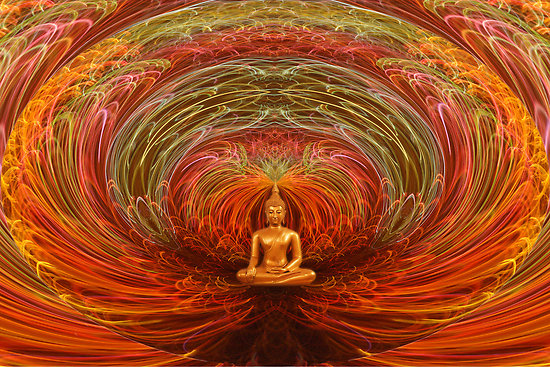Buddhist economics assumes that people are kind and altruistic; we want to help others and relieve their suffering without any specific gain to ourselves and while caring for the planet. This is an important contrast with the traditional economic model assumptions that human nature is self-interested and doesn’t care about others, and ignores environmental degradation. Understanding what is the true self is critical for ensuring that our economic system supports social welfare and improves the quality of life.
In Buddhist economics, people are interdependent with each other and with earth. Human nature includes both self-regarding (egocentric and taking care of oneself) and other-regarding (altruistic and taking care of others) impulses, and the well-being of humans and nature are intertwined. Even when economists believe that humans are not only selfish, opinions abound as to what degree human nature is egocentric and to what degree altruistic; and economists mostly ignore environmental problems.
Economists begin with the assumption that everyone is egotistical, and then they look to see if perhaps caring for others is possible. Economists have observed in lab games that most people have some altruistic feelings, defined as unconditional caring about others with no ulterior motive. Even in an experiment on what people expected from dictators, the subjects expected the dictators to be fair and not behave selfishly. Generous behavior is not only observed in the lab, but also expected by subjects. These experiments have been important for economists to go beyond assuming that people are selfish and to incorporate other-regarding feelings into their models. Bowles and Gintis argue that humans developed cooperative instincts with moral sentiments over time to ensure group survival and growth. Now that the world is united by global warming, we have the opportunity to see how humans behave when existence is threatened in the short term, without time for evolution.
Buddhist economics complements the work of Bowles and Gintis. Yet rather than assuming basic human nature is selfish, and then asking what causes basically selfish people to become other-regarding, Buddhist economics sees human nature as being kind and loving, with self-interest (ego) something that we develop as we grow up in a greedy materialistic world. Then the question becomes “What creates materialistic self-interest (ego development), so people’s natural goodness becomes obscured by self-interest?” Certainly advertising creates endless desires; and inequality creates discontent as people compare themselves to the rich with their lavish lifestyles. Economic performance is measured by income growth, and society evaluates how well we are doing by how fast income is growing, while ignoring that the rich are getting most of the gain in income and our carbon emissions are overheating the planet and killing species.
Buddhist economics begins with the belief that our true nature is kind and altruistic, but then our ego obscures our true nature with delusions that lead to suffering from greed, hatred, and ignorance (the three mental poisons). The goal of life is to go beyond these delusions to be in touch with our Buddha nature, using contemplation and meditation along with our teachers and community of friends (sangha). Ignorance of our basic nature is the root cause of many of our personal, societal, and political problems, and failure to realize our own basic goodness or Buddha nature creates suffering.
We don’t have to agree to what extent humans act out of ego or altruism. What matters is that we agree that people have the desire, and responsibility, to take care of both themselves and others. Then the Buddhist economic system that redistributes income from the rich to the poor and caring about reducing suffering increases social welfare. We can make a living, even prosper, but not at the expense of others or the planet.
Audiences ask me about the violence and aggression promulgated by religions throughout history. Yet this observed violence and aggression is the result of confusion about who we are and how to attain eudaimonic happiness and relieve suffering. Violent behavior is never acceptable in Buddhist economics except to defend oneself and others in order to stop violence. Our mandate is to do no harm to sentient beings or to Mother Earth.
Without practicing Buddhism or any spiritual practice, one can adopt a pragmatic approach that accepts the interdependence among people and with nature, especially with global warming. In 1971, a founder of modern ecology, Barry Commoner, expressed this interdependence as one of the four laws of ecology: “Everything is connected to everything else. There is one ecosphere for all living organisms and what affects one, affects all.”
Then when nature is degraded, and when people are harmed, all life suffers.
As Thich Nhat Hanh writes, “Caring about the environment is not an obligation, but a matter of personal and collective happiness and survival. We will survive and thrive together with our Mother Earth, or we will not survive at all.”
Image (under creative commons) from https://results.searchlock.com/search/?tbm=isch&q=buddha%20nature&slr=1&tsrc=a&sr=omniredir-ask&chnm=7bc02420-4653-4d94-b27a-19a3ca1f8d0c
